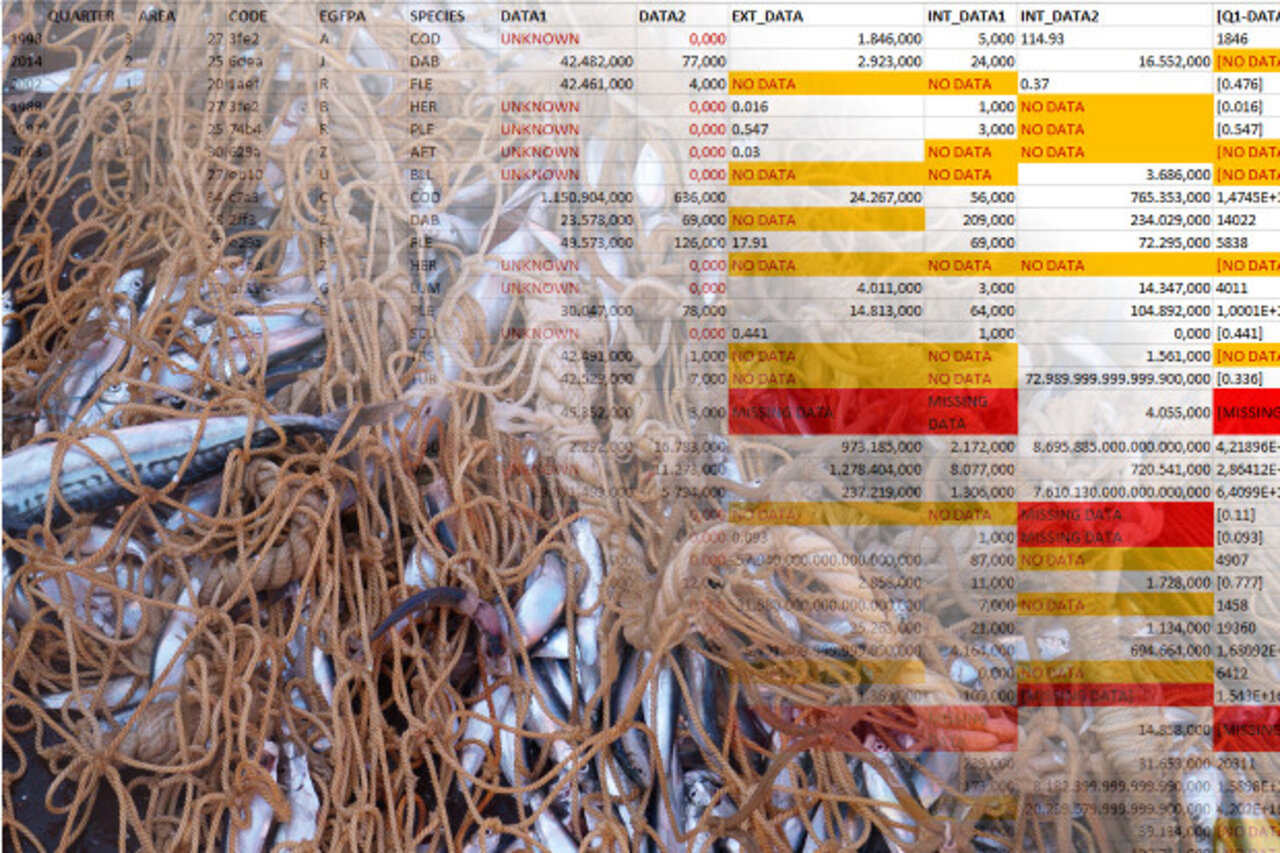Project
Management of data-poor stocks

Study on approaches to management for data-poor stocks in mixed fisheries
Data for a full analytical assessment are not available for all stocks. We try to answer the question how a sustainable exploitation can be guaranteed in these cases as well.
Background and Objective
In European waters, more than 200 fish and shellfish stocks are harvested. It would cost an enormous amount of money to sample enough information from every single stock for a full analytical assessment. However, in most cases, valuable information is available from scientific surveys and fisheries statistics for so-called data-poor stocks.
This project aims at utilising all available data and developing sustainable management strategies to be able to extend the European fisheries policy based on the maximum sustainable yield (MSY) and the landing obligation also for data-poor stocks. It is especially challenging in mixed fisheries - where many stocks are caught together - to ensure a sustainable exploitation without jeopardizing the economic future of these fisheries.
Target Group
- Scientists
- Politicians
- Industry
Approach
All available data will be compiled for data-poor stocks. Based on these data, reference points will be defined that should not be overshot (fishing mortalities) or undershot (biomass reference points) to ensure a sustainable exploitation. In models simulating mixed fisheries, different management strategies will be tested and implications for ecological and economic indicators will be analysed.
Our Research Questions
- How can a sustainable exploitation of all stocks be ensured in mixed fisheries?
- What are the implications of a sustainable exploitation for the economy of mixed fisheries under the landing obligation?
Results
This project contributes to a sustainable management of ecosystems. During the project, an extensive review of methods for data-limited stock assessments was conducted. For the first time, reference points could be estimated for several data-limited stocks in different case studies (e.g., North Sea, Baltic, Mediterranean). It is now possible to identify the stock status, and stocks in bad shape can be protected via additional cuts in total allowable catch (TAC). New methods were developed to implement data-limited stocks in mixed-fisheries simulations. This allows to test sustainable management strategies to find a good balance between ecosystem protection and economic and social sustainability.
More Information can be found in the final report of the DRUMFISH project:
Links and Downloads
Involved Thünen-Partners
Involved external Thünen-Partners
- CEFAS (Centre for Environment, Fisheries & Aquaculture Science)
(Lowestoft, Großbritannien (inkl. Nordirland)) - Danish Technical University (DTU)
(Kopenhagen, Hirtshals, Charlottenlund, Dänemark) - Wageningen University & Research (WUR)
(Wageningen, Niederlande) - Institut français de recherche pour l'exploitation de la mer (IFREMER)
(Brest, LHoumeau, Issy-les-Moulineaux, Nantes, Frankreich)
Funding Body
-
European Union (EU)
(international, öffentlich)
Duration
12.2015 - 12.2017
More Information
Project funding number: Call for Tenders MARE/2014/44
Project status:
finished
Publications
- 0
Fischer S, Mildenberger TK, O'Brien C, Amorim P, Balestri E, Berg CW, Biseau A, Borges L, Bouch P, Brock E, Carpi P, Cervino López S, Chatalov E, Chong L, Cooper A, Cope JM, Cordier AJR, Danby R, De Oliveira J, Taylor MH, et al (2023) Eleventh workshop on the development of quantitative assessment methodologies based on LIFE-history traits, exploitation characteristics, and other relevant parameters for data-limited stocks (WKLIFE XI). Copenhagen: ICES, v, 74 p, ICES Sci Rep 5(21), DOI:10.17895/ices.pub.22140260






